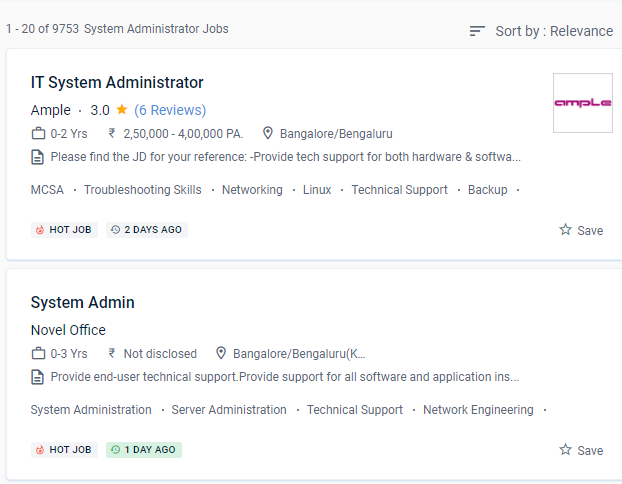System Administration Training by Experts
Our Training Process

System Administration - Syllabus, Fees & Duration
MODULE 1
- System administration introduction, policies, overview, UNIX history and basis
MODULE 2
- File systems and disks
MODULE 3
- Software installation concepts
MODULE 4
- Multi users basics, politics, policies and ethics
MODULE 5
- Automating administrative tasks
MODULE 6
- Networking
MODULE 7
- Backup and disaster recovery
MODULE 8
- DNS
MODULE 9
- SMTP, HTTP
MODULE 10
- Configuration management
MODULE 11
- Distributed computing
MODULE 12
- SNMP, monitoring
MODULE 13
- System security
This syllabus is not final and can be customized as per needs/updates





 When signals halt, system administrators alter cables to repair the transmission media. Network architects have frequently experienced administrators who build data transmission systems from the ground up.
.
They install computers, laptops, intranets, servers, cybersecurity software, and other technology. Systems administration is the division of information technology that is in charge of keeping multi-user computer schemes up and running. You now understand what system administration entails, as well as the functions that system administrators execute and the talents that system administrators possess. Information technology (IT) experts execute the work of systems administration for a company. Circuit boards and CPUs are assembled by computer hardware engineers to produce functional mobile or desktop devices.
System administration roles are broad and often vary based on the type of computer system being managed, however, the majority of them have some fundamental functions that can be accomplished in a variety of ways. Some people excel at determining the company's technology needs as information systems managers.
When signals halt, system administrators alter cables to repair the transmission media. Network architects have frequently experienced administrators who build data transmission systems from the ground up.
.
They install computers, laptops, intranets, servers, cybersecurity software, and other technology. Systems administration is the division of information technology that is in charge of keeping multi-user computer schemes up and running. You now understand what system administration entails, as well as the functions that system administrators execute and the talents that system administrators possess. Information technology (IT) experts execute the work of systems administration for a company. Circuit boards and CPUs are assembled by computer hardware engineers to produce functional mobile or desktop devices.
System administration roles are broad and often vary based on the type of computer system being managed, however, the majority of them have some fundamental functions that can be accomplished in a variety of ways. Some people excel at determining the company's technology needs as information systems managers.



















































































